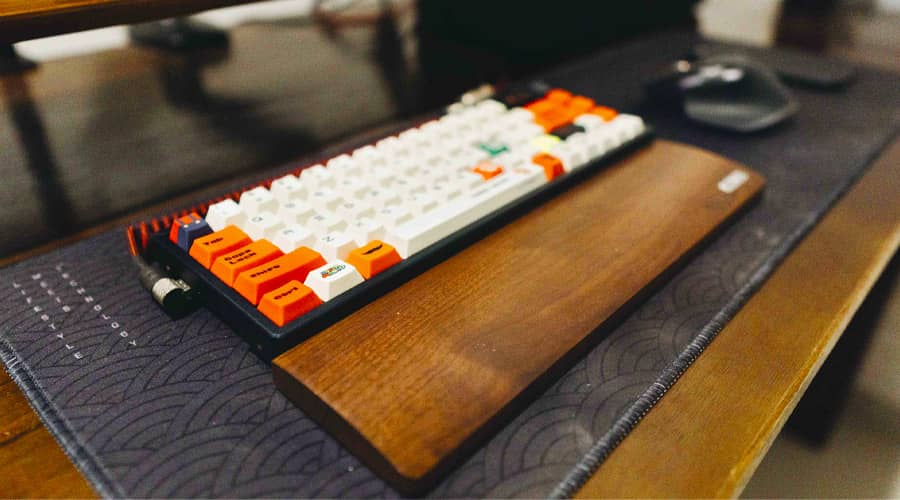With their long lifespan and more tactile feel, mechanical keyboards gradually rise in popularity. Many people will benefit from the built-in switch under each key, making typing faster and more accurate. However, there are several disadvantages to this approach. You may learn about the advantages and disadvantages of typing on a mechanical keyboard here.
Is it true that mechanical keyboards are superior to other types of keyboards?
For those who prefer more tactile and audible feedback while gaming or typing, mechanical keyboards are the way to go. They are more ergonomic and easier on your wrists and fingers, produce elegantly consistent keystrokes, and are precision-engineered for high-performance performance and long-term durability.
However, mechanical keyboards provide a wide range of alternatives, such as linear, tactile, or clicky switches, programmable option keys, macro keys, backlights, or other features, depending on your preferences.
What you’ll learn in this essay is as follows:
- Mechanical keyboards have many advantages over standard keyboards, as I’ll demonstrate.
- If you’re a gamer, a programmer, or suffer from carpal tunnel syndrome, we can help you find the best mechanical keyboard for your needs.
- The significance of selecting the right mechanical switch
- Find out all you need to know before deciding to buy a car.
Why Are Mechanical Keyboards Better for Typing?
Mechanical keyboards are better for typing for several reasons. When deciding whether or not to purchase one, this information is critical. Here’s a quick rundown of the most important reasons why they’re helpful.
Mechanical Keyboards are More Comfortable: They feel more at ease. When typing on a mechanical keyboard, you can expect a better response from your fingertips because each key has a unique switch below it.
Mechanical Keyboards are more precise: They’re more accurate than the previous ones. Mechanical keyboards make typing more accessible while improving accuracy, reducing the likelihood of typos or incorrect key presses. Using them can significantly enhance the productivity of programmers and other persons who type a lot.
Mechanical keyboards last longer: Mechanical keyboards have a longer life span. Between 20 million and 100 million keystrokes can be expected from mechanical keyboards, whereas membrane-based keyboards are only recommended for 5 million.
Mechanical keyboards are heavy: There is a weight to mechanical keyboards. Mechanical keyboards are heavier than membrane keyboards, making them more durable and less likely to move about on your desk.
What Kinds of Mechanical Keyboards Are There?
Three distinct types of mechanical keyboards exist, each distinguished by the type of switch it employs. Each one has advantages and disadvantages, so it’s essential to recognize the difference. What you need to know is provided here.
Clicky switches: With each keystroke, mechanical keyboards with clicky switches produce a loud click noise and a tactile sense. This is a helpful tool if you prefer to have a separate key indicator every time.
Linear switches: Without any visual, tactile feedback, or clicking sounds, linear switches glide up and down smoothly and quietly. In other words, because of how smooth and fast they feel to the touch, they’re popular with gamers everywhere.
Tactile switches. The keypresses are almost ‘felt’ with tactile switches because they are somewhat loud and give a tactile bump. It’s not uncommon for those who type for a living to prefer them.
Which Mechanical Keyboard Is the Best for Typing?
Mechanical keyboards with tactile switches are best for regular typists. Tactile switches provide a somewhat loud and tactile feel, allowing you to have a better sense of what you’re doing and type more accurately.
However, no Mechanical Typing Keyboards manufacturer or type works for everyone, as keyboards are a highly individual choice.
